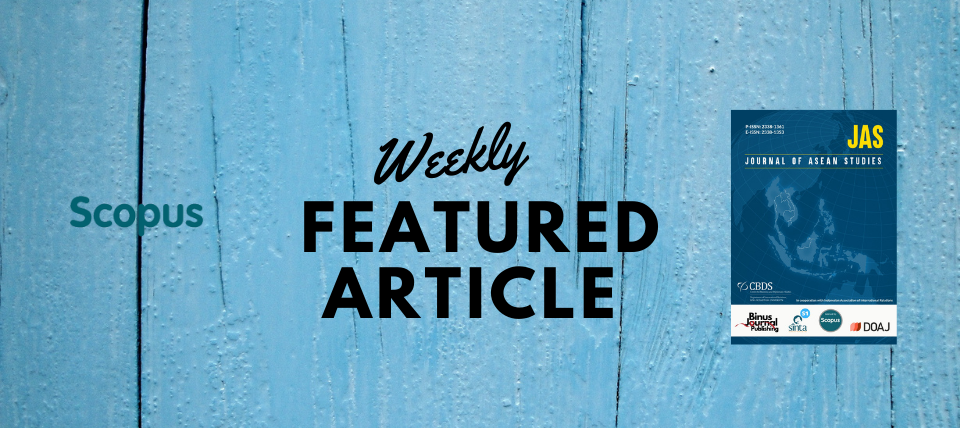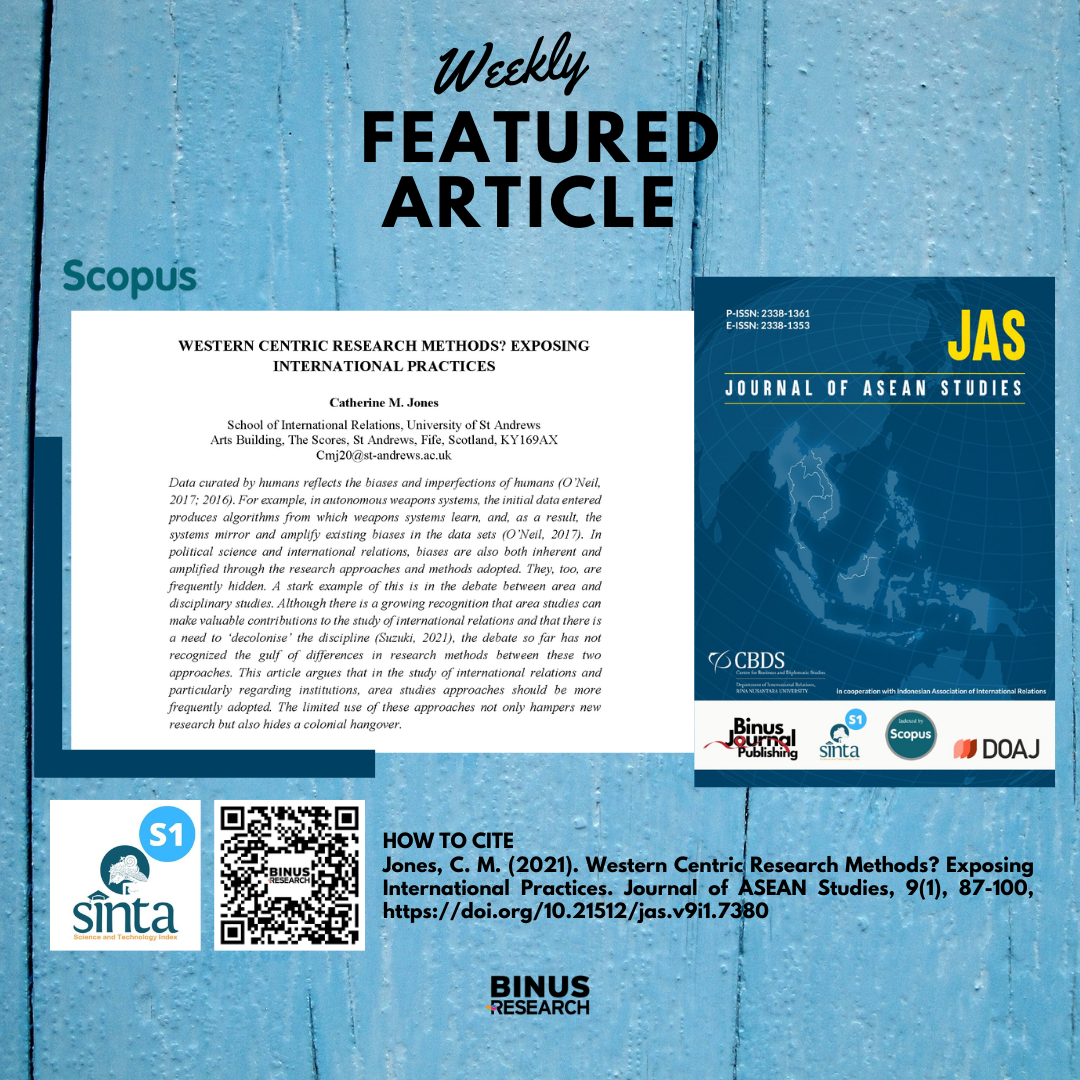Weekly Featured Article

Western Centric Research Methods? Exposing International Practices
Catherine M. Jones
School of International Relations, University of St Andrews
Data curated by humans reflects the biases and imperfections of humans (O’Neil, 2017; 2016). For example, in autonomous weapons systems, the initial data entered produces algorithms from which weapons systems learn, and, as a result, the systems mirror and amplify existing biases in the data sets (O’Neil, 2017). In political science and international relations, biases are also both inherent and amplified through the research approaches and methods adopted. They, too, are frequently hidden. A stark example of this is in the debate between area and disciplinary studies. Although there is a growing recognition that area studies can make valuable contributions to the study of international relations and that there is a need to ‘decolonise’ the discipline (Suzuki, 2021), the debate so far has not recognized the gulf of differences in research methods between these two approaches. This article argues that in the study of international relations and particularly regarding institutions, area studies approaches should be more frequently adopted. The limited use of these approaches not only hampers new research but also hides a colonial hangover.
Scan the QR Code to read the article on website
https://journal.binus.ac.id/index.php/jas/issue/view/363
___________________________________________
ᴅᴀᴛᴀ ᴀɴᴀʟʏᴛɪᴄ ᴀɴᴅ ᴘᴜʙʟɪᴄ ᴇɴɢᴀɢᴇᴍᴇɴᴛ
??? ?????
https://linktr.ee/binusresearch
#journalofaseanstudies #scopus #BINUSUNIVERSITY #BINUSIAN #BINUSRESEARCH #fosteringandempowering


